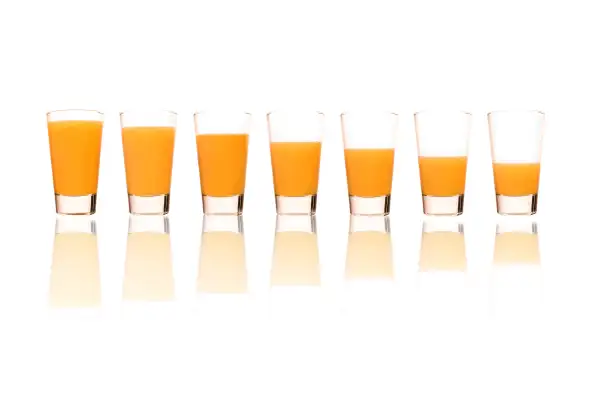Why Sales of Yet Another Traditional Breakfast Staple Are Tanking

In September, the Florida Department of Citrus announced it had paid Marvel Comics $1 million to redesign a superhero mascot who is powered by (you guessed it) orange juice. His name is Captain Citrus, and after helping the Avengers save the world, he says things like, "Just think, it all started with a glass of ORANGE JUICE!"
It's a dorky attempt at boosting orange juice sales, but it's hard to blame citrus growers for the effort. Clearly, the industry needs all the help it can get.
A year ago at this time, it was revealed that during the 2012-2013 season, orange juice sales in the U.S. had totaled 563.2 million gallons, the lowest level in the 15 years that such figures have been tabulated. In the year since, things have only gotten worse for folks in the business of producing and selling orange juice. Data released this week shows that Americans bought a new low of 525.1 million gallons of O.J. during the 12-month period that ended on September 27.
By some measure, orange juice sales have fallen 40% since the 1990s. Clearly, sales have suffered partially for the same reasons that cereal and milk sales have declined: Our fast-paced, on-the-go culture means that fewer people are eating a sit-down breakfast at home, or eating breakfast at all.
Orange juice has faced additional hurdles because coffee, energy drinks, and other beverages have gained market share as popular drinks for any time of the day, breakfast hours included. Also, one of orange juice's biggest selling points—that it's a brilliantly healthy way to start your day—has increasingly been called into question. A strong argument has been made that orange juice, packed as it naturally is with sugar, is no better for you than soda in terms of nutrition. As Businessweek reported late last year, a typical 8-ounce glass of O.J. contains "110 calories and 26 grams of carbohydrates—more than a pair of Oreos."
The criticism has prompted members of the orange juice industrial complex to encourage consumers to drink smaller glasses of O.J. daily—a little is better than nothing at all—and more recently, to hope that a rebranded Captain Citrus just might save the day for citrus sellers. The new Captain Citrus, it must be noted, is as buff as Thor and Captain America, with six-pack abs and a bodybuilder physique. The problem is that, based on the way sales have been trending, consumers seem to associate orange juice with the image projected by the old Captain Citrus, best described as a "big, fat talking orange wearing a cape."
Whereas the new Captain Citrus is drawn with a glowing orange on his muscular chest reminiscent of Iron Man, the vintage version has a large "C" in the center of his spherical body. Presumably, it stands for "Citrus," not "calories."
